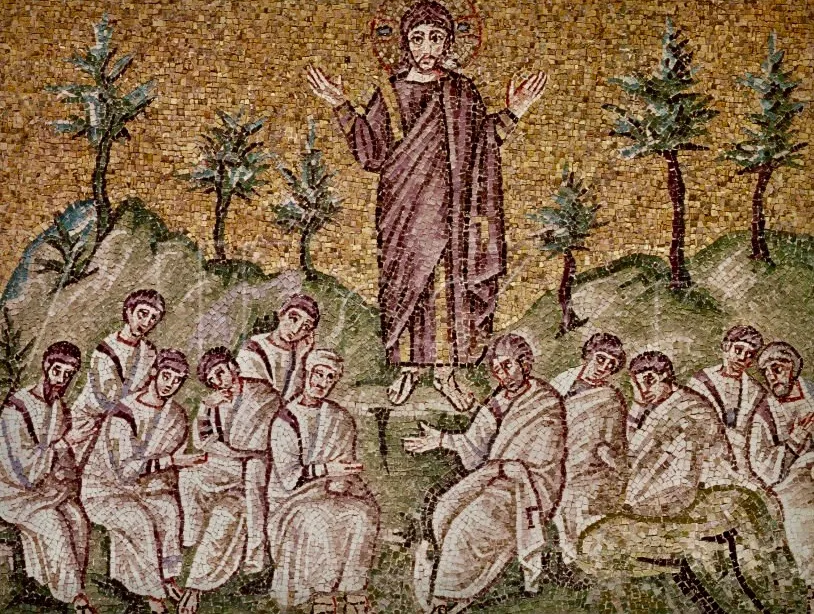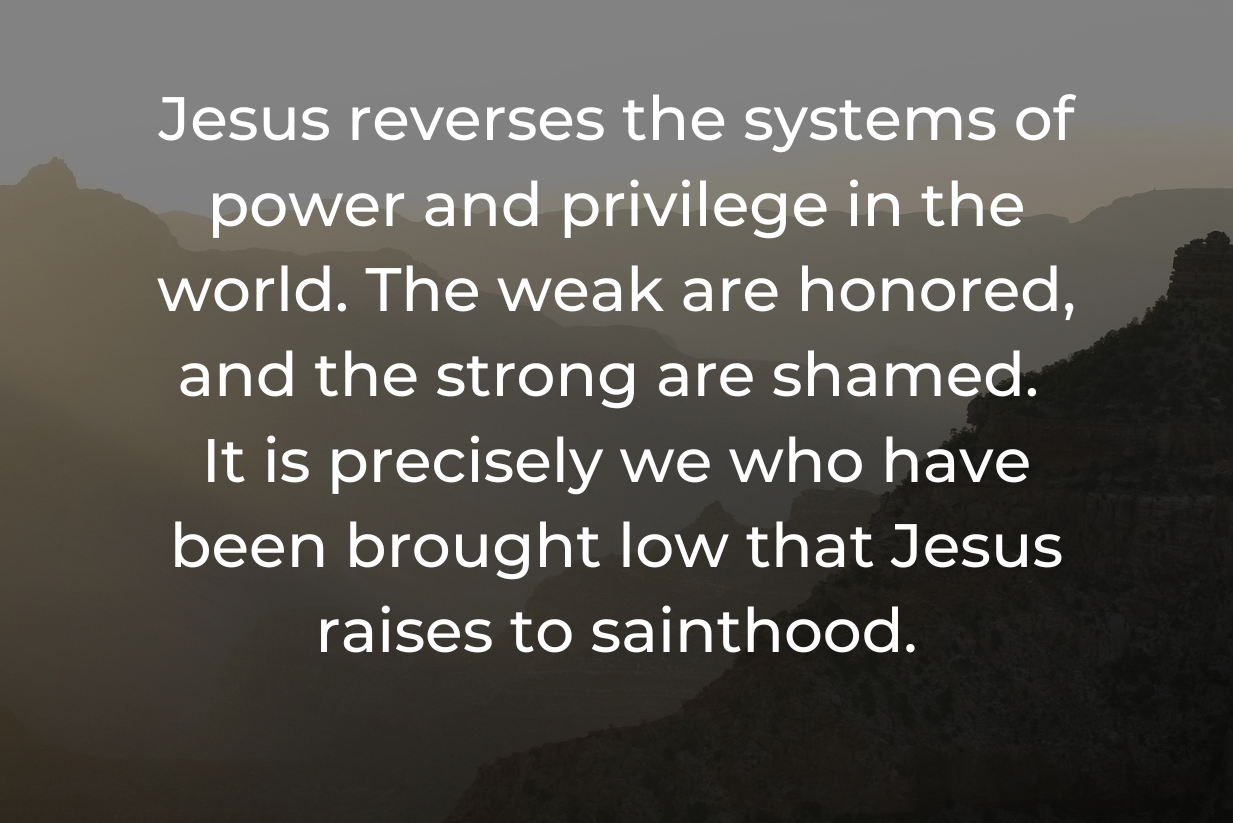In Memory of the Saints
Luke 6:20-31
All Saints Sunday
Analysis by Ben Williams
20Then [Jesus] looked up at his disciples and said:
“Blessed are you who are poor,
for yours is the kingdom of God.
21“Blessed are you who are hungry now,
for you will be filled.
“Blessed are you who weep now,
for you will laugh.
22“Blessed are you when people hate you, and when they exclude you, revile you, and defame you on account of the Son of Man. 23Rejoice in that day and leap for joy, for surely your reward is great in heaven; for that is what their ancestors did to the prophets.
24“But woe to you who are rich,
for you have received your consolation.
25“Woe to you who are full now,
for you will be hungry.
“Woe to you who are laughing now,
for you will mourn and weep.
26“Woe to you when all speak well of you, for that is what their ancestors did to the false prophets.
27“But I say to you that listen, Love your enemies, do good to those who hate you, 28bless those who curse you, pray for those who abuse you. 29If anyone strikes you on the cheek, offer the other also; and from anyone who takes away your coat do not withhold even your shirt. 30Give to everyone who begs from you; and if anyone takes away your goods, do not ask for them again. 31Do to others as you would have them do to you.”
Jesus reverses the systems of power and privilege in the world. The weak are honored, and the strong are shamed. It is precisely we who have been brought low that Jesus raises to sainthood.
DIAGNOSIS: Chasing Sainthood
Step 1: Initial Diagnosis (External Problem): The Works of the Saints
Grounding: This is quite the list of faithful works that Jesus gives the disciples: love your enemies, don’t seek retribution, choose peace over violence, give to those in need. The list seems straight forward; though, the deeds themselves are admittedly difficult.
Tracking: Isn’t it curious that this text comes up for All Saints Sunday this year. As congregations gather to remember their loved ones who have died, stories will be shared of their faithful, loving, and even courageous deeds. Some of these stories might speak of the saints’ generosity even in their poverty. While others may recognize the saints’ accomplishments and blessings. These memories may inspire us to good works. Or, they may beg the question: do we measure up?
Step 2: Advanced Diagnosis (Internal Problem): The Attitudes of the Saints
Grounding: The blessings and woes draw a contrast between those who have received much in this life and those who have not. It is easy to think Jesus is calling his followers to enter poverty, hunger, sorrow for the sake of receiving a blessing in a future reality. As if these attributes earn God’s blessing on condition.
Tracking: In our remembering of the saints who have gone before us, it is easy, therefore, to use their stories for our own assurance of these blessings. We eulogize the dead by lifting up their works in this life. Fear and anxieties about the finality of death drive us to accomplish the to-do list of the good life so that we too might be raised as saints.
Step 3: Final Diagnosis (Eternal Problem): The Woe of the Saints
Grounding: Ironically, Jesus says, “Woe to you when all speak well of you, for that is what their ancestors did to the false prophets.” Luke’s beatitudes suggests that those have received much risk ostracism from the blessings we might otherwise attribute to wealth, fullness, and joy.
Tracking: It is painfully ironic that our very attempt to secure for ourselves God’s blessing is precisely that which keeps us from it. There is nothing that we can do to earn God’s blessing, or the sainthood after which we desperately chase.
PROGNOSIS: Sainthood Given
Step 4: Initial Prognosis (Eternal Solution): The Blessing of the Saints
Grounding: Of course, the beatitudes are not devoid of promise. “Blessed are you when people hate you, and when they exclude you, revile you, and defame you on account of the Son of Man. Rejoice in that day and leap for joy, for surely your reward is great in heaven; for that is what their ancestors did to the prophets.” Jesus offers these words of consolation to those who find themselves ostracized, cast down, and in the midst of life’s woes.
Crossing: Jesus reverses the systems of power and privilege in the world. The weak are honored, and the strong are shamed. It is precisely we who have been brought low that Jesus raises to sainthood. Because of Christ’s life, death, and resurrection, we find God’s blessings offered freely and abundantly.
Step 5: Advanced Prognosis (Internal Solution): The Faith of the Saints
Grounding: This consolation from Christ empowers those who have been brought low to hope in God’s preferred and promised future. The woes of this life give way to hope-filled blessings and longings for a world made right.
Crossing: This consolation forms the foundation of faith for the saints we remember today. Not their deeds, or accomplishments, or supposed blessings, but the Holy Spirit’s gift of faith that is passed on through the generations. It is this very same Spirit’s movement that transforms our anxieties and fears into hope-filled visions of God’s preferred and promised future.
Step 6: Final Prognosis (External Solution): The Lives of the Saints
Grounding: And, what is this hope-filled vision? It is the love of all people, even those we once considered enemies. It is the lack of vengeance that consumes our hearts. It is the peace of Christ overcoming all impulses for violence. It is the flowing generosity that ensures all peoples’ needs are not only met, but abundantly satisfied.
Crossing: It is this vision of God’s preferred and promised future that inspired the lives of the saints who have gone before us. Not a list of obligations, but a glimpse of something being done in and through us by the love of God. This vision is our inspiration too – to walk in the love of Christ, by the power of the Holy Spirit, until at the last we are joined with all the saints in rejoicing.





You must be logged in to post a comment.